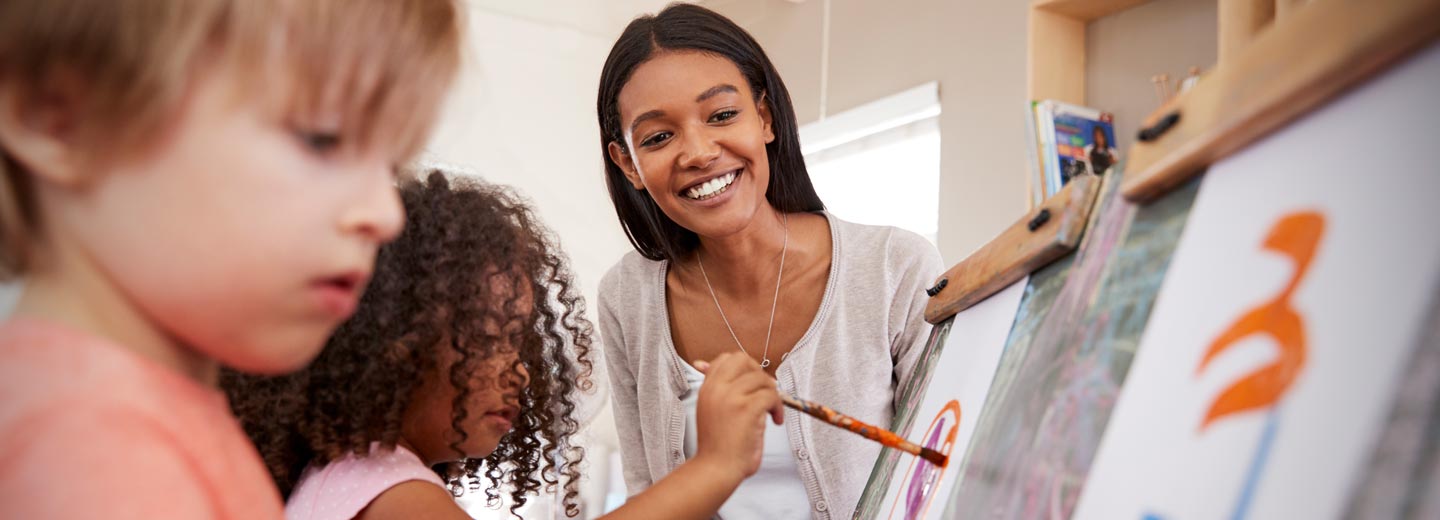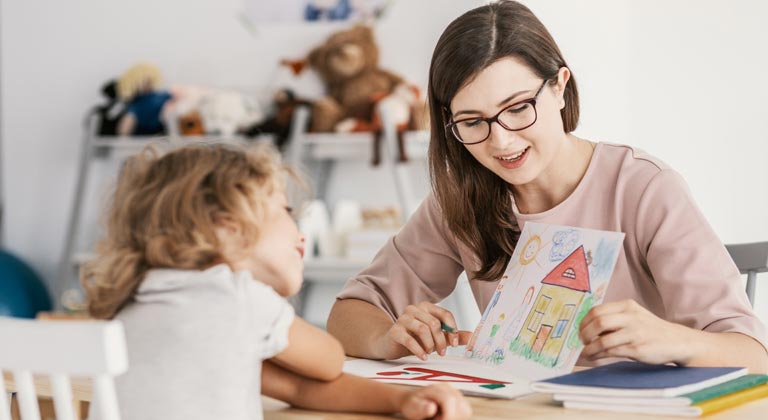A.A. in Early Childhood Education

Answer the call to work as an Early Childhood Educator
CAEP-Accredited
Competitive Tuition
Aligned with CDA Credentials
Learn More Today
Complete the form to learn more about this program.
- Duration 2 years
- Cost per Credit $420
- Credit Hours 72
Program Benefits
- Private, Christian education
- Scholarships available
- Free transfer credit evaluation
- Flexible, online format
- Now accepting applications – no app fee
Boost Your Career with an Accredited Online Degree
CSP Global’s online early childhood education degree gives you the social and physical child development knowledge you need to excel as an educator in two years. With this practical associate degree, you’ll meet the standards of the Child Development Associate National Credentialing program.
Guided by industry-experienced faculty members, you’ll complete a career-connected curriculum that explores the theories of Piaget, Erickson and other child experts and prepares you to facilitate appropriate learning environments for young children. With our CAEP-accredited program, you’ll apply all the right classroom practices to foster exceptional learning experiences for young children.

Curriculum
The associate degree in early childhood education program provides a liberal arts perspective through an accelerated general education core, plus 12 core credit hours. You’ll study a career-connected curriculum that explores foundations of early childhood education, the biological growth and development of children, developmentally appropriate practices for working with children, and the effect that play has on development.
View CoursesProgram Outcomes
- Meet the emerging standards for early childhood educators.
- Adapt to the needs of young students from birth through grade three.
- Create effective lesson plans that help young children develop lifelong skills.
Admissions Requirements
To apply for the online associate degree in early childhood education from Concordia University, St. Paul, you’ll need:
- Completed online application
- Submit official transcripts from your previous regionally accredited institution(s) with a minimum cumulative GPA of 2.0 based on a 4.0 system.
- If you have attended a MNSCU college or university we also ask that you provide an official accompanying DARS or MnTC goal area worksheet. CSP Global accepts completed goal areas.
- If you have less than 20 college credits completed, you will need to submit your official high school transcript as well as any college level courses you have taken.
- Additional Requirements
- Access to a computer that meets CSP Global’s technology requirements.
Tuition Details
The online A.A. in Early Childhood Education costs $420 per credit hour, making your total tuition $30,240. Convenient payment options and $2,000 partnership scholarships are available to help you pay for your education.
Faculty
At CSP Global, you’ll have support from industry-experienced faculty who will offer guidance and answer your questions throughout your online associate degree in early childhood education program. It’s yet another way the online format mimics the experience of studying on campus.
With over 25 years of experience and more than 40 online programs, CSP Global is a pioneer in online education. As part of our diverse online community, you’ll receive a liberal arts education guided by Lutheran principles. The career-connected curricula, flexible learning options, and alumni connections available at CSP Global mean you’ll graduate ready for success. We are committed to delivering online programs with the same quality as our on-campus learning.
Online ExperienceCSP Global is committed to initiatives that keep college affordable. In addition to financing your education with federal student aid and private loans, you will be eligible for a tuition discount offered to online students (this limits eligibility for institutional scholarships). Transfer students could receive $2,000 or more through transfer partnerships and transfer student awards. CSP Global is also a Military Friendly® institution. An enrollment counselor can help you apply for financial aid.
Tuition & AidFrequently Asked Questions
Are you interested in one of CSP Global’s programs? Get answers to the most frequently asked questions about time to completion, accreditation, tuition and fees, admissions, and more. If applicable, you can also learn more about licensure, concentrations, or specializations offered in the program. Get more information about any online program or contact an enrollment counselor at (855) 641-2525 with further questions.
This program will prepare you to apply for the Child Development Associate (CDA) National Credentialing Program.
The A.A. in Early Childhood Education includes 12 credit hours plus accelerated general education requirements, for a total of 64 credit hours.
The A.A. in Early Childhood Education will have six start dates throughout the year, in January, March, May, July, September, and October.
Online associate programs from CSP Global are $420 per credit hour.